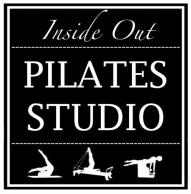|
This article in Alive magazine is great for explaining the many benefits of the healing practice of Qigong. In the coming months Qigong will be incorporated more into the Inside Out Studio, its a perfect compliment to our mind, body and spirit practice.
The Healing Practice of Qigong Go with the (energy) flow by Harriet Cooper SAVE While many people have heard of tai chi and its health benefits, fewer know about qigong (pronounced CHEE-gung). This 5,000-year-old Chinese form of mind/body practice has a long history of physical and mental benefits. As Westerners embrace qigong, they’re discovering its widespread healing properties, findings increasingly documented by medical researchers studying this ancient Chinese energy therapy. What is qigong? Qigong concentrates on the release and flow of the body’s energy. Its postures and exercises emphasize slow, circular movements that may be combined with regulated breathing, meditation, self-massage, and guided imagery to stimulate the flow of chi or energy. Unlike other mind/body practices, qigong is based on the principle that practitioners can direct the body’s energy, remove blockages believed to lead to disease and dysfunction, and encourage the body to achieve a natural state of balance and health. By helping the body heal itself, the regular practice of qigong may possibly reverse the effects of certain age-related diseases such as arthritis or high blood pressure. The four schools There are different schools of qigong, but they generally fall into four categories or applications.
Health benefits Much of today’s research on qigong’s health benefits comes from China and tends to be small case studies, rather than the large, randomized, controlled trials favoured by Western researchers. However, as qigong catches on in the West, additional research is being done on its effects on the human body, either by itself or as a complementary treatment to Western medicine. Studies have focused on specific medical conditions or quality of life issues. While qigong is not a panacea, preliminary studies in a number of areas have shown positive outcomes, with researchers calling for additional larger studies. Cancer Studies in China, Hong Kong, and Australia indicate that when used in combination with conventional methods, qigong improved immune function, mood status, muscle mobility and strength, and overall quality of life, while reducing specific side effects of treatment. North American hospitals and wellness centres are starting to offer qigong as a complement to standard cancer care, recognizing its benefits for quality of life and well-being. High blood pressure In a 20-year study, people who practised qigong reduced their blood pressure medication, while those in the control group increased theirs. Immune system A study showed an improvement in immune system functioning, based on white blood cell counts, after only one month of daily 30-minute qigong training. Stroke In a 30-year study of patients who had suffered a stroke, those who practised qigong had a 50 percent reduction in death from any cause including stroke, as well as stroke-related illness. Fibromyalgia Several studies, including those conducted by Dalhousie University in Nova Scotia, showed practising qigong positively affected the level of pain, sleep, and both physical and mental function among most fibromyalgia patients. Menopause According to the US National Center for Complementary and Alternative Medicine, a 2010 review of 21 studies suggested mind/body practices such as qigong may reduce common menopausal symptoms including “frequency and intensity of hot flashes, sleep and mood disturbances, stress, and muscle and joint pain.” Arthritis Several small studies have shown that qigong can improve joint pain, stiffness, and overall physical functioning among adults with arthritis. A recent Canadian study that focused on 80 children with juvenile idiopathic arthritis found that a 12-week program of qigong led to improvements in confidence, balance, and overall physical abilities. Psychological well-being Promising evidence links qigong practice to a decrease in depressive symptoms, stress, anxiety, and mood disturbances among patients suffering from chronic conditions. Balance, flexibility, and motor skills Qigong has long been used as a way for seniors to improve balance and flexibility and decrease the risk of falling. New research indicates qigong massage can improve motor skills in young children with cerebral palsy and Down syndrome. Beginning qigong practice Movements in qigong are rhythmic and gentle, which make them easily adaptable for all ages, from children up to the elderly. They can be performed standing or seated. As with all forms of exercise, know your body and your limits. A brief warm-up, either at home or before a class, can help prevent muscle strain. Do not do qigong immediately after eating or if you’re extremely tired or have an infection. Talk to your health care practitioner before starting qigong if you
About the Author Harriet Cooper practises qigong for her body and mind. http://www.alive.com/articles/view/23938/the_healing_practice_of_qigong
0 Comments
|
AuthorThe Inside Out Pilates team is a group of like minded people who want to help ourselves and our guests live their best life every day with passion, energy and purpose. In this blog we'll share interesting links, quotes, stories, pictures and pretty much anything we think you might enjoy. Archives
March 2016
Categories |


 RSS Feed
RSS Feed
